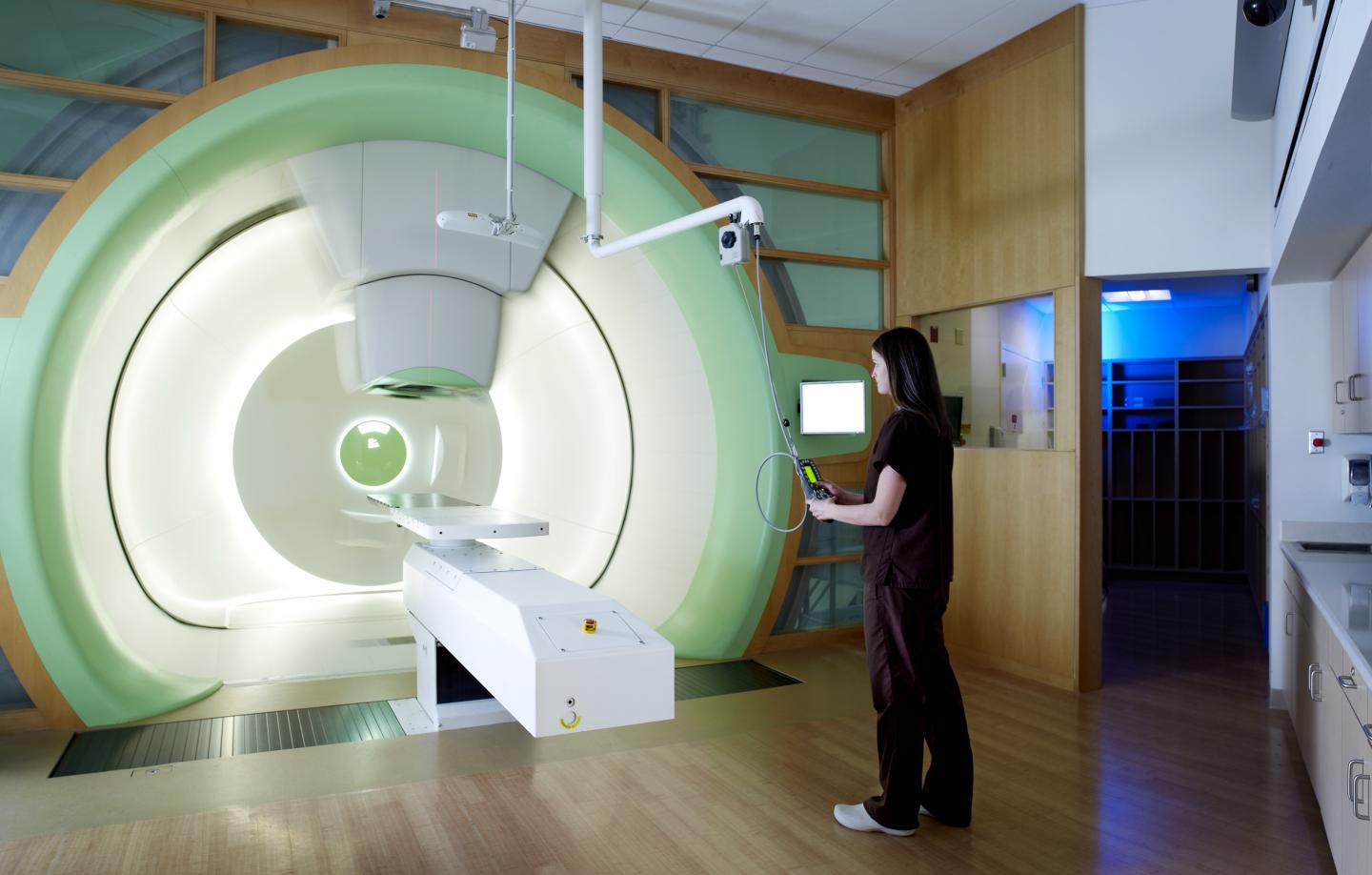
The use of proton therapy in treating cancer has recently been supported by two studies led by Christine Hill-Kayser, MD. This research has found that proton therapy not only improves outcomes in children with brain cancer but can decrease the risk of brainstem damage in children with tumors of the central nervous system. Hill-Kayser is an associate professor of Radiation Oncology at the Perelman School of Medicine at the University of Pennsylvania, a member of Penn’s Abramson Cancer Center, and a pediatric oncologist in the Cancer Center at Children’s Hospital of Philadelphia (CHOP).
Published in Pediatric Blood and Cancer, the first study showed increased rates of overall survival and recurrence-free survival to be associated with proton therapy in young medulloblastoma patients. The second study, published in Acta Oncologica, found that children with central nervous system tumors saw significantly lower rates of brainstem damage using a new proton therapy technique known as pencil beam scanning than those who received traditional proton techniques.
Proton therapy separates itself from traditional photon radiation in that the latter typically involves the use of multiple x-ray beams to target a malignancy. In this process, healthy tissue surrounding the site of the cancer is inevitably damaged by the radiation. Proton therapy, on the other hand, beams protons directly to the tumor. This technique puts a majority of the radiation dose within the tumor, allowing minimal radiation to cause unintentional damage in functional tissue. Proton therapy is an FDA-approved treatment that has shown therapeutic success in various cancers.
Improving Patient Survival Rates
The first of Hill-Kayser’s studies included children who were no older than 4 years of age and had just been diagnosed with medulloblastoma, a cancer that occurs at the base of the skull. Older children, aged 4-18, typically receive radiation therapy to the entire brain and spine for medulloblastoma. These younger patients, however, can experience toxicity from such intervention that could impair their brain’s development. Young children presenting with medulloblastomas are typically given high-dose chemotherapy as an alternative, but these patients can often relapse. The most common area for this relapse is at the base of the skull where the tumor is typically found, known as the posterior fossa.
In this work, 14 young children who received proton therapy after surgery and chemotherapy for medulloblastomas were evaluated. Hill-Kayser and colleagues noted that the five-year survival rate was 84% in these patients and that the recurrence-free survival was 70%. A literature review showed that in patients who do not receive radiotherapy, these rates are typically both only between 30 and 60%. The research team notes that further research is warranted by the small cohort size of their study.
“Our study, while small, shows promising outcomes when we use proton therapy to target just the area of surgery in these cases as opposed to radiating the whole brain and spinal areas,” said lead author Amardeep Grewal, MD, chief resident in Radiation Oncology at Penn.
Minimizing Damage to the Brainstem
The second study involved the use of pencil beam scanning, which uses proton therapy to minimize the harm done to healthy tissue. This work evaluated 166 pediatric patients with central nervous tumors and found that the rate of patients with brainstem damage from this therapy at a 2 year follow up was 0.7%, which is significantly lower than the numbers reported in literature regarding traditional doubled scattered proton therapy.
“The effect of proton therapy on the brainstem has been a subject of much debate, but our data show that pencil beam scanning proton therapy does not increase the risk compared to conventional photon techniques,” said the lead author Jennifer Hyatt Vogel, MD, who completed this work during her residency at Penn.
More Press on Proton Therapy in Oncology
Thomas Andersson, Board Director of #KongsbergBeamTechnology @OsloCancer #KongsbergInnovation on new precision #protontherapy radiation #therapies against #cancer pic.twitter.com/GO114fPM7c
— EIT Health Scandinavia (@EITHealthScand) September 10, 2019







 © 2025 Mashup Media, LLC, a Formedics Property. All Rights Reserved.
© 2025 Mashup Media, LLC, a Formedics Property. All Rights Reserved.